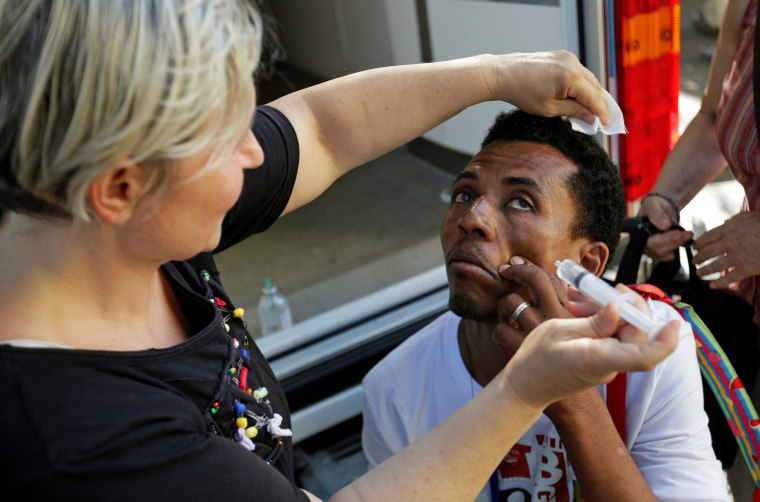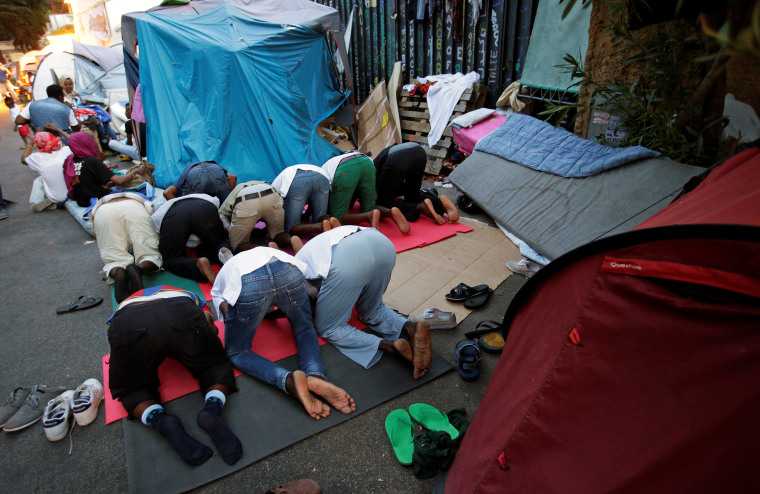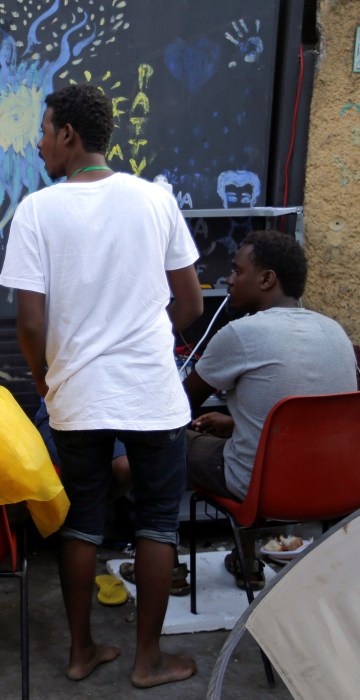
Photo
Thousands of Migrants Flock to Rome's Gloomy Street
Volunteers set up a makeshift camp for thousands of migrants looking for refuge in Rome.
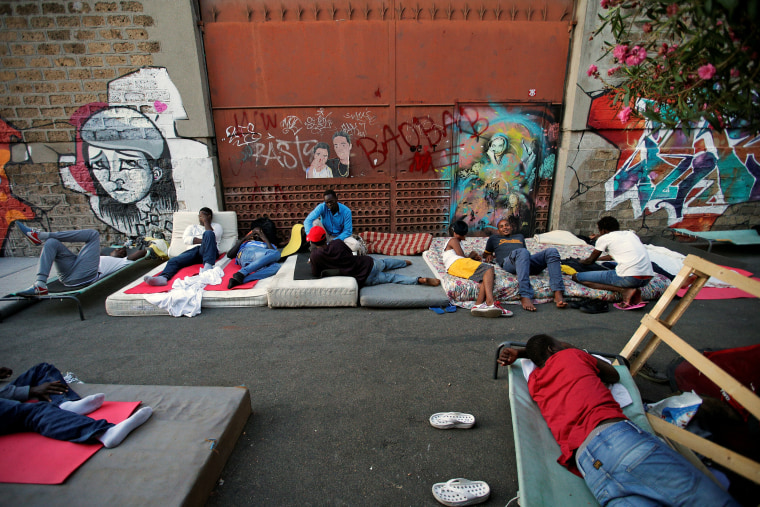
Tempers are flaring between increasingly frustrated residents and boat migrants mostly from Africa using a well-known transit camp in central Rome as temperatures soar this summer.
Italy is taking in thousands of boat migrants every week for a third year in a row, and friction is common between them and those who live along the path many take on their journey towards northern Europe.
Above: Migrants prepare for the night at a makeshift camp in Via Cupa (Gloomy Street) in downtown Rome, Italy, August 1, 2016.
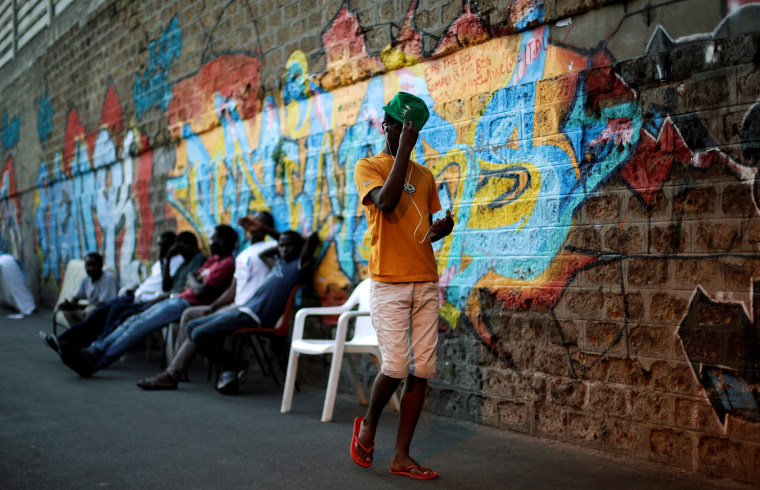
Set up by volunteers, the Baobab centre, by Rome's Tiburtina train station, was shut down by police in December in the wake of the Paris attacks and because the European Union wants Italy to stop migrants from moving on, not help them to do so.
But Baobab volunteers quickly set up a camp on the street in front of the old shelter with tents and chemical toilets, serving three meals a day, and migrants have flocked there in their thousands to the camp in Via Cupa - Gloomy Street in English.
Above: A migrant walks through the makeshift camp in Via Cupa, Rome on August 1.
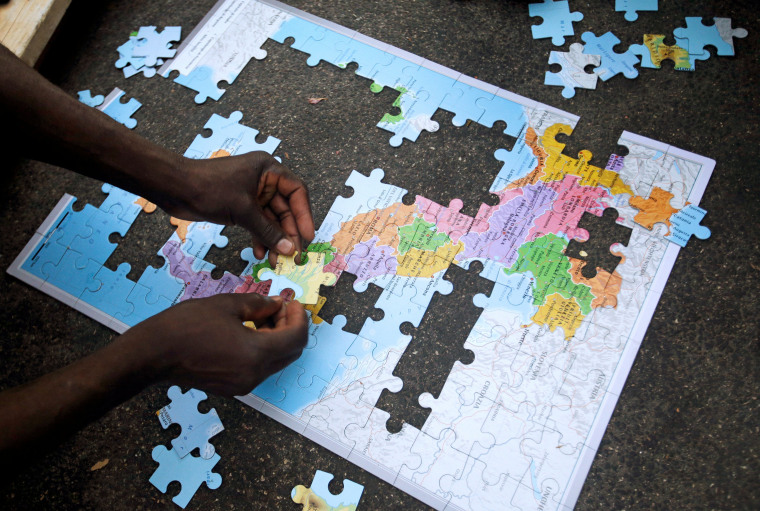
Baobab organizers estimate 40,000 have come through in the past year. Last week, about 300 men, women, children and teenage boys slept on mattresses laid out on the road, and the numbers are expected to rise as the summer wears on.
Above: Migrants assemble a puzzle depicting Italy on a map.

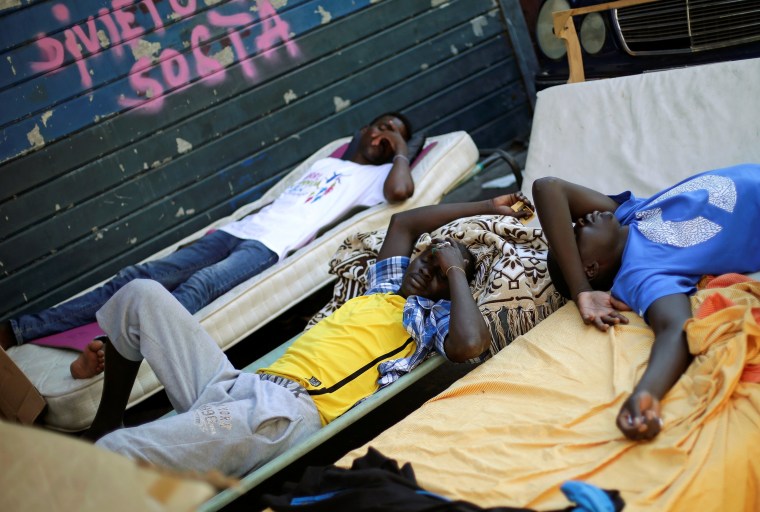
Italy has been on the front line of Europe's immigration crisis, taking in more than 420,000 boat migrants since the start of 2014, official figures show. The state provides shelter to some 140,000 asylum seekers - seven times more than it did in 2013 - in centers up and down the Italian peninsula.
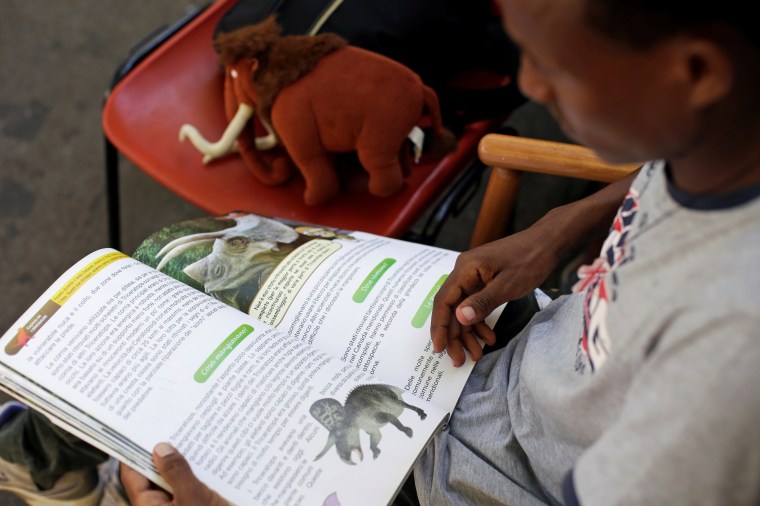
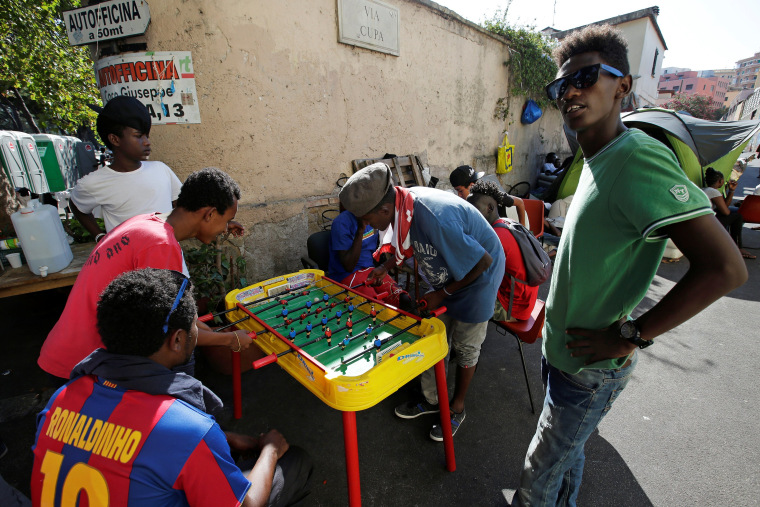
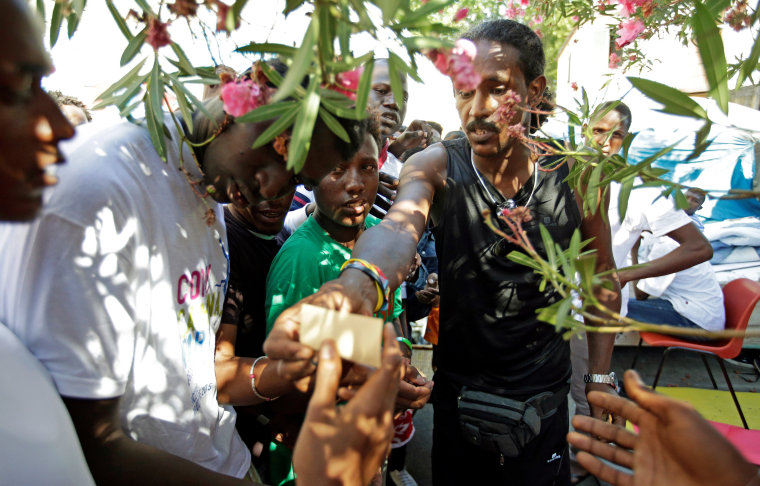
Baobab is fully operated by volunteers - doctors, retired civil servants, designers and others - and funded by donations. Each week its Facebook page asks for specific items, such as small-size men's shoes or Ibuprofen. Someone donated a car battery so migrants can charge their phones.
Above: Migrants gather to collect tickets for food in Via Cupa.
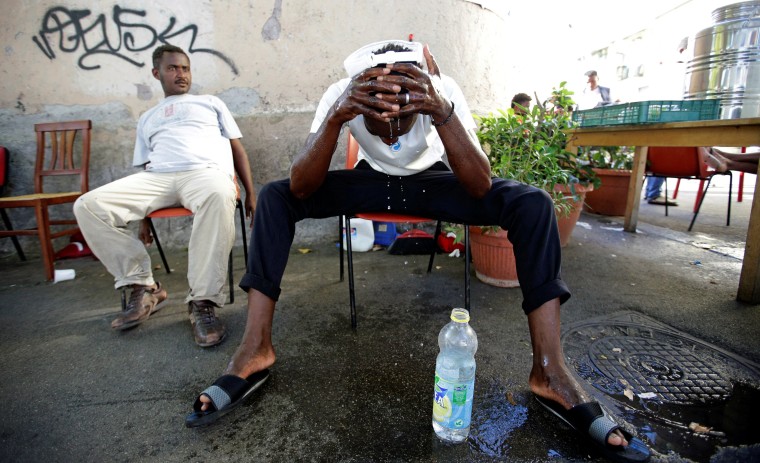
"We're the first to say that the situation is inadequate," said Francesca Del Giudice, a Baobab founder. "We don't think it's a dignified shelter for them. We want to take them off the street; instead they're sleeping on the street."
Above: A migrant washes himself in Via Cupa.
